Retro Replay Review
Gameplay
Fracas delivers a classic turn-based combat experience that feels both strategic and approachable. Drawing on the foundational mechanics that Stuart Smith would later refine in Ali Baba and the Forty Thieves, the game centers on moving your party across grid-based battlefields and engaging waves of foes. Each turn, players decide whether to advance, retreat, cast spells or unleash weapon attacks, making positioning and timing crucial to victory.
(HEY YOU!! We hope you enjoy! We try not to run ads. So basically, this is a very expensive hobby running this site. Please consider joining us for updates, forums, and more. Network w/ us to make some cash or friends while retro gaming, and you can win some free retro games for posting. Okay, carry on 👍)
One of Fracas’s standout features is the sheer number of combatants it can handle simultaneously. You might find yourself directing a half-dozen heroes against a horde of bandits, ogres or undead skeletons, and keeping track of initiative order adds a thrilling layer of complexity. This abundance of characters also introduces emergent tactics: flanking maneuvers, defensive formations and coordinated spellcasting become vital for turning the tide in large-scale skirmishes.
Character progression in Fracas is straightforward but rewarding. Victorious battles yield experience points and treasures that boost your party’s stats or unlock new abilities. While the depth of customization is more limited than in later titles, you’ll still find meaningful choices in how to allocate resources and recruit new allies. The sense of gradual empowerment keeps you invested as each encounter offers tangible growth.
For modern players, the user interface may feel a bit terse—menus are text-driven and commands often rely on keyboard shortcuts. However, once you master the controls, the system proves remarkably robust. Fracas’s emphasis on tactical decision-making over flashy animations ensures that every victory feels like a genuine accomplishment of skill and foresight.
Graphics
Visually, Fracas is emblematic of early 1980s home computer titles. The game makes use of simple, tile-based graphics rendered in a limited color palette, with each unit represented by a distinct icon or silhouette. Though rudimentary by today’s standards, these visuals convey the necessary information cleanly, ensuring you always know who’s where on the battlefield.
Battle maps are laid out on a plain background, and terrain types such as forests, rivers and fortifications are distinguished by basic geometric shapes or color fills. This minimalism might strike some players as austere, but it has the unexpected benefit of keeping the focus squarely on tactics rather than visual flourishes. If you’re nostalgic for the crisp, pixel-perfect abstractions of classic RPGs, Fracas delivers in spades.
Animations are sparse, limited mainly to simple flickering or sprite changes to indicate attacks and spell effects. While there’s no eye candy in the modern sense, the rapid pace of turns means you spend more time planning your next move than watching lengthy cutscenes. For fans of functional design, the graphics serve their purpose without getting in the way.
Overall, the aesthetic charm of Fracas lies in its retro authenticity. The blocky units, gridlines and monochrome text boxes evoke the earliest days of computer role-playing. If you appreciate games that trade graphical fidelity for strategic depth, these visuals will feel like home rather than a compromise.
Story
Fracas doesn’t lean heavily on narrative bells and whistles, instead opting for a straightforward premise: assemble your party, stake out the badlands, and fight to claim treasures and glory. The game world is sketched rather than narrated, leaving much to your imagination. This open-ended approach suits the combat-centric design, allowing encounters to drive your adventure as much as any scripted plot.
Rather than following a linear storyline, Fracas presents a series of randomized or semi-randomized missions—raiding enemy camps, rescuing captives, or storming fortified strongholds. Each scenario feels fresh thanks to variable enemy placements and loot distributions. Progression is gauged largely by your party’s growing reputation and wealth, lending a sandbox-style freedom uncommon in its era.
Despite the minimal storytelling, Fracas teases a broader world of rival factions, mythical beasts and hidden dungeons. Reading between the lines of in-game text and item descriptions, you’ll discover hints of an overarching conflict that teases future adventures. For many players, this sense of a larger tapestry waiting to be explored became the hook that kept them returning to Stuart Smith’s creation.
In essence, the narrative of Fracas is more implied than explicit. If you crave a richly detailed lore or character-driven drama, this title may feel light on story. However, for those who prefer to craft their own epic through tactical triumphs and risk-reward choices, the game’s understated plot framework provides the perfect canvas.
Overall Experience
Playing Fracas today is a journey back to the roots of turn-based RPGs. Its emphasis on large-scale skirmishes and streamlined character growth predates many conventions that would later define the genre. While it may lack the bells and whistles of modern titles, its core systems remain surprisingly engaging, especially for players who love methodical, thoughtful combat.
The learning curve can be steep for newcomers unused to menu-driven interfaces and text-heavy commands, but perseverance pays off. Once you acclimate, you’ll appreciate the crisp feedback loops: plan your tactics, execute your strategy, reap the rewards and unlock new units. There’s a satisfying rhythm to pocketing a clutch victory against overwhelming odds.
As a historical artifact, Fracas offers valuable insight into the design philosophies of early computer RPGs. Its DNA is clearly visible in later Stuart Smith classics like Ali Baba and the Forty Thieves and the much-celebrated Adventure Construction Set. By experiencing Fracas, you witness the evolutionary spark that ignited an entire subgenre of turn-based adventures.
For retro enthusiasts, game historians or strategy fans seeking a pure tactical sandbox, Fracas remains a noteworthy title. It’s not for everyone—casual players may find its presentation austere, and those seeking a cinematic narrative may look elsewhere—but its combination of strategic depth and old-school charm ensures that this pioneering RPG still has something to offer over four decades after its debut.
 Retro Replay Retro Replay gaming reviews, news, emulation, geek stuff and more!
Retro Replay Retro Replay gaming reviews, news, emulation, geek stuff and more!

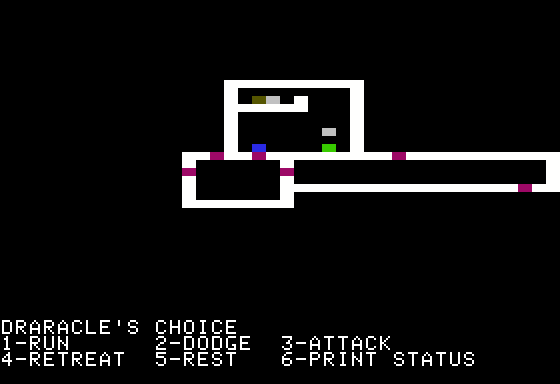
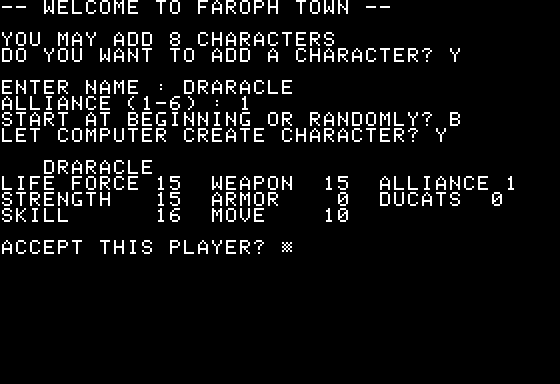
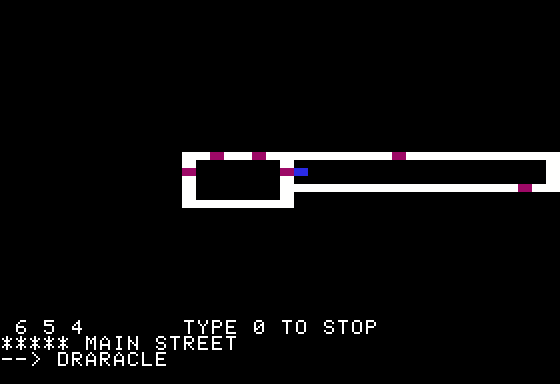
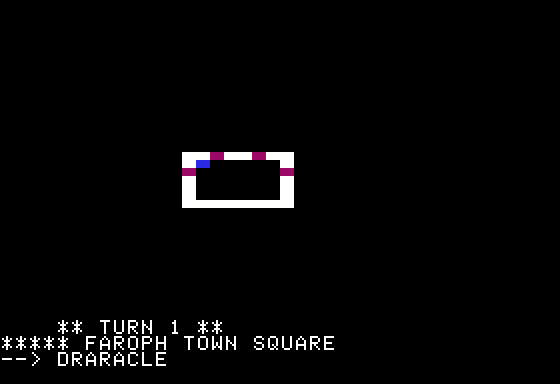
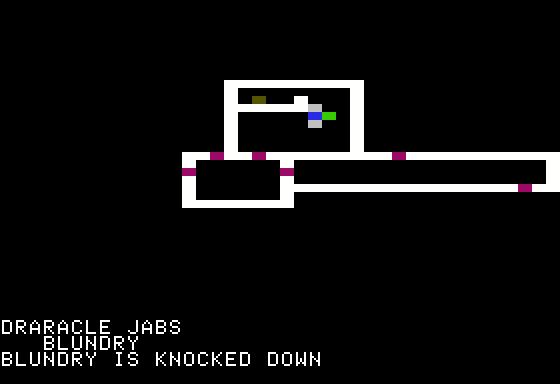


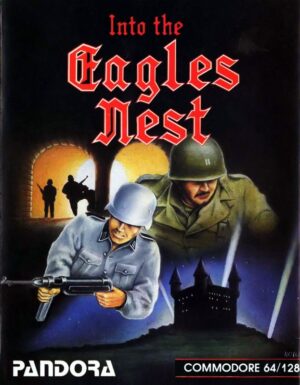
Reviews
There are no reviews yet.